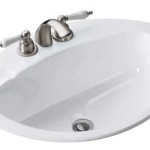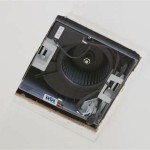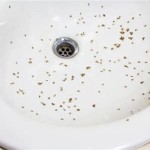Why Does the Water From My Bathroom Faucet Smell?
A foul odor emanating from your bathroom faucet can be an unpleasant and worrisome experience. This issue is often caused by factors within your plumbing system, ranging from bacterial growth to the presence of specific chemicals. Understanding the potential causes can help you pinpoint the source of the smell and take appropriate measures to resolve it.
1. Bacterial Growth
One of the most common culprits behind smelly faucet water is bacterial growth. Stagnant water in your pipes provides an ideal breeding ground for bacteria, particularly in areas where the water flow is slow or intermittent. As these bacteria multiply, they release sulfur-containing compounds that cause a distinct rotten egg smell. This issue is more prevalent in older homes with lead pipes or pipes that haven't been flushed regularly.
The presence of hydrogen sulfide-producing bacteria can be particularly problematic. These bacteria thrive in warm, moist environments and break down organic matter, releasing hydrogen sulfide gas, which gives off the characteristic rotten egg odor. Even small amounts of hydrogen sulfide can be easily detected, making it a significant concern for homeowners.
2. Chemical Contamination
Another factor contributing to smelly faucet water is chemical contamination. This can occur due to the presence of certain substances within your water supply. For example, chlorine is often added to municipal water systems to kill bacteria, but high levels of chlorine can lead to a distinct chemical odor. This issue can be more pronounced in areas with older plumbing systems, as chlorine can react with pipes and create unpleasant smells.
In addition to chlorine, other chemicals like iron, manganese, or sulfur can contribute to foul-smelling water. Iron and manganese can cause a metallic or earthy odor, while sulfur can produce a rotten egg or sewage-like smell. These contaminants can enter your water supply through various sources, including aging pipes, well water, or industrial activities near your home.
3. Water Heater Issues
Your water heater can also play a role in the development of smelly faucet water. Over time, the anode rod in your water heater can corrode and release particles into the water supply. These particles can contribute to odors, especially if they contain sulfur. Additionally, if your water heater isn't properly maintained, sediment can accumulate in the tank, creating a breeding ground for bacteria that can produce foul-smelling water.
A malfunctioning water heater can also release gases into the water, such as hydrogen sulfide or ammonia, causing an unpleasant odor. If your water heater is producing excessive amounts of sediment, it may be time to consider replacing or servicing the unit.
4. Plumbing System Issues
Problems with your plumbing system, such as leaks, can also contribute to smelly faucet water. Leaks in your pipes can allow air to enter the system, creating a breeding ground for bacteria. Moreover, leaks can cause water to stagnate in your pipes, leading to the growth of bacteria and the release of foul odors.
The use of older, corroded pipes can also contribute to smelly water. As pipes age, they can become more susceptible to corrosion, releasing particles into the water supply. These particles can contribute to odors and even affect the taste of your water.

Moldy Smelling Water From Bathroom Faucet Hometalk

Why Does My Water Smell 6 Common Smells Their Causes

Why Does My Faucet Water Smell Five Star Plumbing

Why Does My Water Smell 4 Strange Tap Smells And Causes

Your Household Water Quality Odors In Uga Cooperative Extension

Why Does My Water Smell Bad Flood Brothers Plumbing

Why Your Water Smells Like Rotten Eggs Sierra Air Conditioning Plumbing

Why Does My Water Smell Like Metal Mike Diamond

Why Does The Water In My Home Taste Bad A D Plumbing Services

Smelly Water Could Be A Sign Of Serious Trouble
Related Posts







